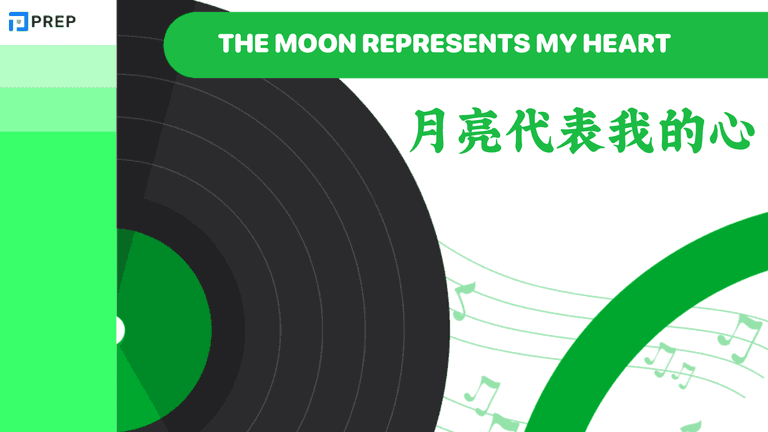What “Shut Up in Chinese” Means and How to Say It Right
“Shut up in Chinese” is most often translated as 闭嘴 (bì zuǐ), a strong and sometimes rude phrase. This guide explains its meaning, correct pronunciation, polite ways to say “be quiet,” common slang forms, and cultural tips so you can use the expression naturally and avoid mistakes.
I. What Does “Shut Up in Chinese” Really Mean?
The most direct translation of Shut up in Chinese is 闭嘴 (bì zuǐ). This phrase is made up of:
- 闭 (bì) – to close
- 嘴 (zuǐ) – mouth
So literally, it means "close your mouth." It's a strong, blunt expression often used in informal or emotional situations. While grammatically simple, its tone and context can come across as rude or confrontational—similar to its use in English.
Let’s break this down more closely:
- If used with close friends, it might be perceived as a joking or teasing remark, depending on your tone.
- If said to a stranger, teacher, or co-worker, it can be considered offensive or disrespectful.
In Mandarin culture, where politeness and indirectness are valued—especially in public or group settings—direct commands like 闭嘴 are rarely appropriate unless you're in a very casual or emotional moment (e.g., a heated argument).
Example:
闭嘴,你听我说!
Bì zuǐ, nǐ tīng wǒ shuō!
“Shut up, let me speak!”
Notice how emotionally charged that feels—even in translation. 闭嘴 is grammatically correct but socially risky. Unless you're fluent and confident with the context, it's safer to explore softer alternatives (covered below).
II. How to Pronounce “Shut Up in Chinese” Correctly
The Mandarin phrase for “Shut Up in Chinese” — 闭嘴 — is pronounced as bì zuǐ. Even though it’s only two syllables, proper pronunciation is crucial, especially when tones can completely change the meaning.
Pinyin and Tone Explanation
- 闭 (bì): Pronounced with the 4th tone — a sharp, falling tone (similar to giving a command: “Go!”)
- 嘴 (zuǐ): Pronounced with the 3rd tone — a falling-rising tone, lower and more drawn out.
Together: bì zuǐ = [pee-tsway], with tone pattern 4-3.
Why Tones Matter
Mandarin is a tonal language, so getting the tones wrong might lead to misunderstandings. For example:
- Mistaking zuǐ (嘴, mouth) with a different tone might confuse listeners or make the phrase sound unnatural.
- Saying both words with a flat tone (tone 1 or neutral) may sound robotic or stiff.
Proper tone, rhythm, and flow will not only make you sound more natural — they’ll also help you avoid awkward misunderstandings. If you’re unsure, try listening to native speakers using 闭嘴 in real conversations, dramas, or language learning videos.
III. How to Politely Say “Shut Up in Chinese” Without Sounding Rude
Although 闭嘴 (bì zuǐ) is the most direct translation of "shut up," it can come across as blunt or even offensive in many situations. In Chinese culture, which values indirectness and maintaining social harmony, it’s important to use more tactful expressions—especially in formal or polite settings.
Polite and Respectful Alternatives
If you want to tell someone to be quiet without being rude, consider these softer phrases:
- 安静一下 (ān jìng yí xià) – “Please be quiet for a moment”. This is neutral and commonly used in schools, meetings, or with children.
- 可以小声一点吗?(kě yǐ xiǎo shēng yì diǎn ma?) – “Could you speak a bit more quietly?”. Framed as a polite question rather than a demand, this is widely acceptable in public or group settings.
- 我们小点声,好吗?(wǒmen xiǎo diǎn shēng, hǎo ma?) – “Let’s keep our voices down, okay?”. Friendly and inclusive, often used among friends or in informal environments.
These alternatives allow you to maintain the intended message without sounding confrontational or disrespectful.
Indirect Ways to Ask for Quiet
Native Chinese speakers often use indirect strategies to encourage silence:
- Change the subject or introduce a pause as a social cue.
- Ask neutral questions like “Could we focus for a moment?"
- Refer to the environment: “Others might be trying to concentrate."
These methods are effective in both social and professional settings, and they soften the request without weakening it.
Cultural Note
- In Mandarin-speaking communities, how you say something can matter more than what you say. Tone, attitude, and word choice all carry social weight. Using gentler phrases or indirect speech helps protect relationships and avoids unnecessary tension.
- If you're ever unsure, it's always safer to use a polite request instead of a command. This approach reflects emotional intelligence and cultural sensitivity—skills that make your Chinese sound more natural and respectful.
IV. Slang Ways to Say “Shut Up in Chinese” Like a Native Speaker
If you want to sound more natural — or understand native Chinese speakers in casual conversations, social media, or memes — it’s helpful to learn some common slang or informal ways to say “shut up” in Mandarin. These aren’t always polite, but they’re part of real spoken language.
Common Slang and Internet Phrases
Here are a few expressions used in everyday conversations or online platforms:
- 闭嘴啦 (bì zuǐ la) – A slightly softer version of 闭嘴. The particle “啦” adds emotion or a casual tone. Depending on tone, it can be friendly teasing or still very firm.
- 少废话 (shǎo fèi huà) – Literally means “Stop talking nonsense” or “Cut the crap.” It’s very direct and often used jokingly among peers, but can be aggressive if used seriously.
- 拉闸闭嘴 (lā zhá bì zuǐ) – A popular slang phrase on Chinese internet. Literally “pull the switch and shut your mouth”, it’s a humorous or exaggerated way to tell someone to shut up — often used in memes, comment sections, and fan chats.
These phrases are emotionally charged and should be used only in very casual, peer-to-peer settings, such as conversations among close friends or online banter.
When (and When Not) to Use These Slang Terms
Using slang like this can make you sound more like a native speaker — but only if you understand the context:
- Safe to use in: Casual group chats, online comments, joking with close friends. Tone matters a lot.
- Avoid in: Professional environments, speaking to elders, teachers, or strangers. What might sound playful to you could sound aggressive to someone else.
- Cultural awareness: Many slang terms originate from internet subculture or dialects, so their meaning can shift quickly. What’s trendy today might be outdated next year.
To get a feel for how these are really used, observe native speakers on platforms like Bilibili, WeChat Moments, or short-form Chinese videos. Listen to their tone, pace, and context.
While "shut up" in Chinese can be translated directly as 闭嘴 (bì zuǐ), it’s not always the best choice in real-life conversations. Depending on your tone and the situation, it can sound playful, firm, or downright rude. Mandarin offers many alternatives — from polite requests to casual slang — that allow you to express yourself more naturally and appropriately.
Understanding when and how to use each phrase is just as important as knowing the words themselves. As you continue learning Chinese, focus not only on vocabulary, but also on context, cultural nuance, and tone. That’s what truly makes your speaking sound authentic. Follow PREP’s upcoming articles to keep your Chinese learning journey smooth, practical, and culturally informed — one real expression at a time.

Hi I'm Chloe, and I am currently serving as an Product Content Administrator at Prep Education. With over five years of experience in independent online IELTS study and exam preparation, I am confident in my ability to support learners in achieving their highest possible scores.
Comment
Premium content
View allPersonalized roadmap
Most read












